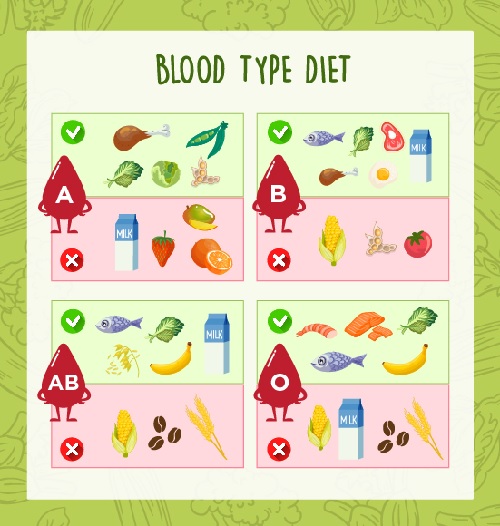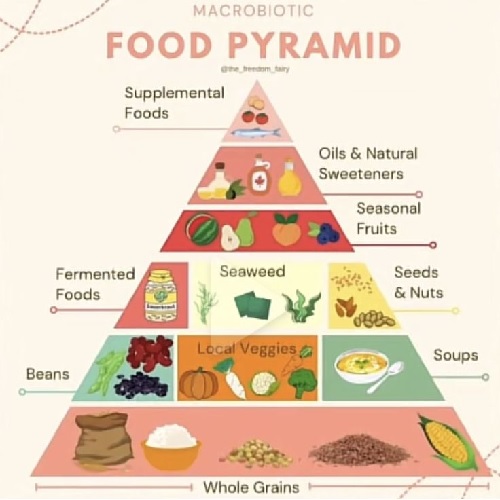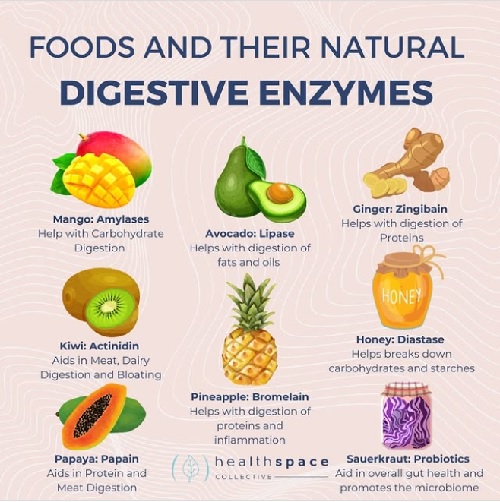
For example, according to this diet, Type O appreciates more meat, Type A - more vegetables, Type B - more eggs and Type AB - more fish.
According to this diet type, Blood type A is thought to be genetically predisposed to a more agrarian diet, and eating plant-based foods helps reduce inflammation and supports digestion.
According to this diet type, Blood type B people are believed to have evolved as nomads with diverse dietary habits, and they can digest a wide variety of foods. They can benefit from a more balanced approach to food, with an emphasis on meat, dairy, and vegetables.
Blood Type AB is believed to be the most recent blood type, and its individuals are considered a blend of the "Nomadic" and "Agrarian" diets. Therefore, they can tolerate a more varied diet but still should avoid certain foods that could cause inflammation or digestive problems.
Blood Type O people are believed to have evolved as hunter-gatherers, requiring a diet rich in animal protein and low in grains and dairy. A high-protein, low-carb diet is said to help with weight loss, improved metabolism, and better digestion.
Blood Type Diet is not for everyone. Always consult your family doctor and dietitian before making decision to switch to Blood Type Diet.

The Macrobiotic Diet is a holistic eating philosophy that emphasizes balance, harmony, and the connection between food and well-being. It originated in Japan and was popularized in the West in the mid-20th century by George Ohsawa, who believed that diet could not only influence health but also a person’s spiritual and emotional state. This high in fiber and low fat traditional Japanese diet is based on the concept of Yin and Yang — the idea that two opposites (like hot/cold, light/heavy, sweet/salty) must be balanced in all aspects of life, including food.
It advocates reducing animal products, eating more locally-grown, plant-based, organic food based on whole grains (brown rice, barley, millet...), vegetables, beans and legumes.
Here are some key elements of the Macrobiotic Diet:
The way food is prepared and cooked is important in the macrobiotic philosophy. Steaming, boiling, baking, and grilling are the most common methods. Frying and micro-waving are discouraged as they can alter the energetic properties of food.
Beyond food, the macrobiotic lifestyle emphasizes mindfulness, meditation, and maintaining emotional balance. Ohsawa believed that mental and emotional states affect health, and so a positive, harmonious mindset is just as important as food.
If you're considering trying the Macrobiotic Diet, it's important to consult with a healthcare provider or nutritionist to ensure you’re meeting your nutritional needs.

FEP (Foundation Eating Plan) Diet is a nutrional plan that focuses on overall health to achieve a long and quality life. FEP Diet promotes eating lots of vegetables, whole foods, fewer processed foods and less added sugar. Some of the most popular food in FEP Diet list include Fruits, Vegetables, Whole grains (brown rice, oatmeal, whole-wheat bread...), Legumes (beans, peas and lentils), Nuts and seeds.
Don't confuse this Foundation FEP Diet with Food Enzyme Program Diet also called FEP Diet.
Here are some potential drawbacks of Foundation FEP Diet:
If you're considering trying the Foundation FEP Diet, it's important to consult with a healthcare provider or nutritionist to ensure you’re meeting your nutritional needs.

The Food Enzyme Program Diet, a.k.a FEP Diet is a relatively lesser-known dietary approach, based on the idea of maximizing the intake of enzymes from raw and minimally processed foods to improve digestion, enhance metabolic processes, and promote overall health.
The FEP Diet posits that consuming raw foods, which contain naturally occurring enzymes, reduces the burden on the body’s internal production of enzymes, making digestion more efficient and promoting overall health.
While the concept of enzymes in digestion is widely accepted, the FEP Diet places particular emphasis on the importance of raw food, enzyme-rich foods, and food combining rules to optimize the body’s natural processes and improve vitality.
Don't confuse this Food Enzyme FEP Diet with Foundation Eating Plan Diet also called FEP Diet.
Some of main concerns about Food Enzyme FEP Diet are:
If you're considering trying the Food Enzyme FEP Diet, it's important to consult with a healthcare provider or nutritionist to ensure you’re meeting your nutritional needs.

The GenoPalate Diet is ideal for people interested in a science-based, tailored approach to eating and those curious about how their genetics influence their diet and nutrition. It’s also useful for anyone looking for a unique perspective on optimizing their health.
If you're considering trying the GenoPalate Diet, it's important to consult with a healthcare provider or nutritionist to ensure you’re meeting your nutritional needs.

While the traditional Macrobiotic Diet focuses on the overall ratio of Yin and Yang foods within a meal, the I Ching Diet introduces an additional dimension: vertical layering. Here, the order in which the body encounters different energetic densities - sometimes referred to as a culinary data stack - is considered just as important as the ingredients themselves.
By stacking ingredients vertically, a dish can express a specific energetic direction: rising, falling, or grounding, shaping how flavors and textures are experienced over the course of eating.
While food preparation methods in the I Ching Diet are less prescriptive than in the macrobiotic approach, steaming, boiling, baking, and grilling remain the most common methods.
The I Ching Diet is an experimental, exploratory approach to food structure. If you are considering adopting it as part of your regular eating habits, consult a qualified healthcare provider or nutrition professional to ensure your nutritional needs are being met.